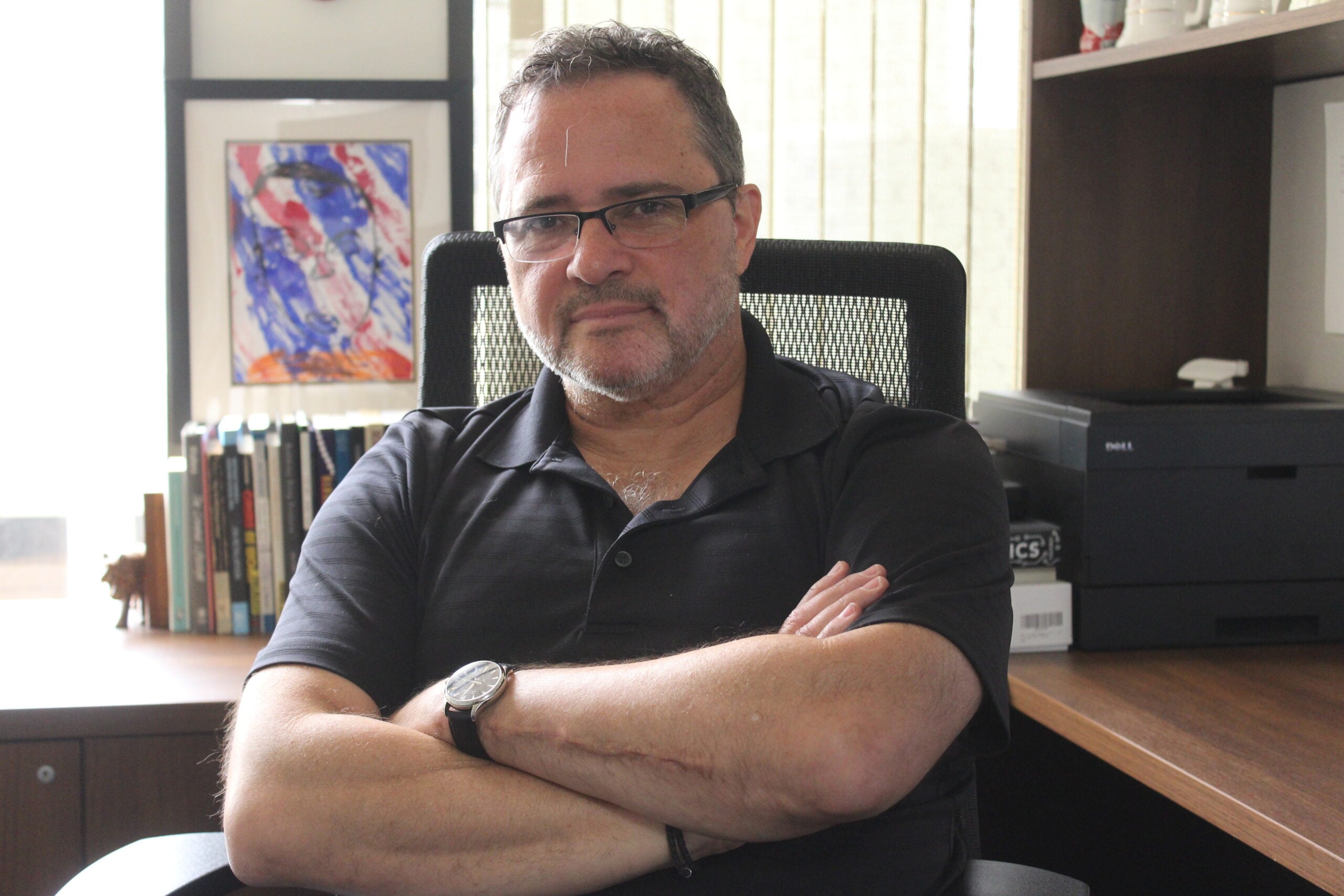These Shooting Victims Say The Fear Driving Atlanta Politics Is Misplaced

Criminologist Volkan Topalli organized the Safe Atlanta Initiative after he was shot in the parking lot of a Home Depot.
Johnny Kauffman / WABE
In May, a fight broke out at a pool party near a Home Depot in Atlanta’s Lindburgh neighborhood.
Volkan Topalli was shopping for mulch when he heard the echo of a gunshot. He walked out to the store’s parking lot, where the sun was starting to set, and dialed 911. While he was looking down at his watch, Topalli saw a stray bullet strike his wrist.
“It felt like someone had wrapped me really hard on the wrist,” he said. “There was some kind of a spray of blood that came out real fast, and I dropped the phone, and then I immediately put my hand on my arm. I knew what had happened.”
Like many cities around the country, Atlanta has seen a spike in violent crime this year, and it’s become an issue in local elections coming up this November.
Social media and some local news outlets can give the impression that crime is rampant and the city is on fire, which can provoke fear, but some shooting victims, like Topalli, say that fear is often misplaced.
Topalli’s wrist has healed after surgery, and as far as his mental health, his reaction to the shooting can seem superhuman. He’s not afraid.
“I’m not worried, or nervous, or scared to exit my door, to go on a walk, to take my kids to the park,” Topalli said. “A lot of that has to do with the fact that I am a criminologist, and I study the stats, and so I kind of know what the odds really are. Like, you’re much more likely to get hurt driving your car than to be a victim of violence.”
Topalli is a criminologist at Georgia State University, and for decades he’s studied data that shows what happened to him was unusual.
For Topalli and his mostly white neighbors in Morningside and Buckhead, the chances they get shot are very slim. But he’s quick to point out the threat is much greater for people living in predominantly Black neighborhoods.

People like 19-year-old Alexus Harris, who in August went to a family gathering to celebrate her brother’s soon-to-be child. Harris remembers that the mom’s sister showed up with her girlfriend, who brought a gun.
A fight broke out, and Harris was involved. She says she was trying to defend herself. The gun went off and hit her foot. She still can’t walk, and when she recently heard a loud noise outside her apartment, she went inside right away.
“My heart started beating fast,” Harris said. “Because like when I got shot, I didn’t know that I got shot. You really don’t know until seconds after, and it’s just so scary.”
But what weighs on Harris the most isn’t the possibility she’ll be shot again. She’s come to accept that guns are all around her, even though she’s not happy about it. What she’s most concerned about is how the police will treat her family—or that someone will be wrongfully convicted.
“The only thing that’s worrying me is the law,” she said.
These kinds of concerns about racial bias in the legal system should be driving Atlanta’s politics, says Thaddeus Johnson, another criminologist at Georgia State University who’s part of a group of academics and experts Topalli organized after he was shot. The group includes the surgeon who treated Topalli at Grady Memorial Hospital.
They’re calling themselves the Safe Atlanta Initiative, and one of the goals is fighting fear about crime with facts and expertise.
“The fear of crime always tends to exceed the actual pace of crime,” said Johnson. “What we’re here to do is to bring some truth, so you can reduce that fear because when you’re afraid, that fear can be debilitating. We have to make sure that our citizens are not debilitated.”
Johnson says politicians tend to take advantage of that fear for their personal gain when they should be talking about the root causes of violence—like access to guns in Georgia, lack of mental health support and poverty.
“Most of the conditions that are ripe for crime, Black people are the ones who are most often afflicted by it,” Johnson said.
The group of experts that includes Johnson and Topalli, has been meeting with candidates for mayor of Atlanta. They’re hoping both voters and the city’s next mayor will act on facts and not fear.








